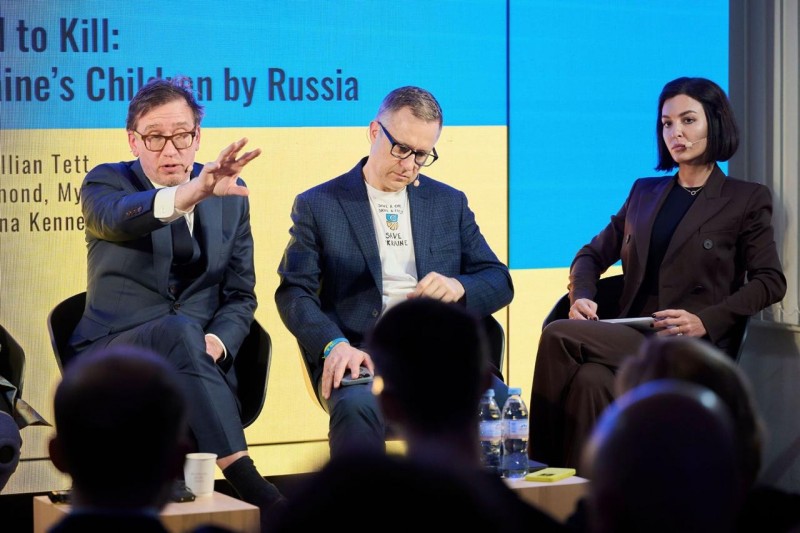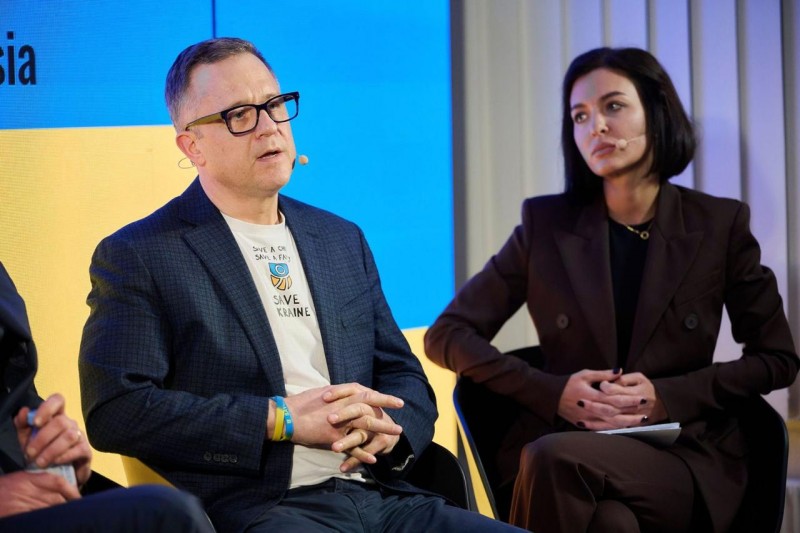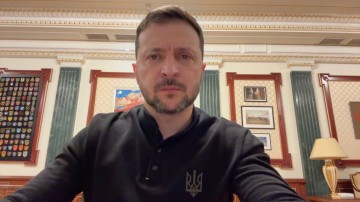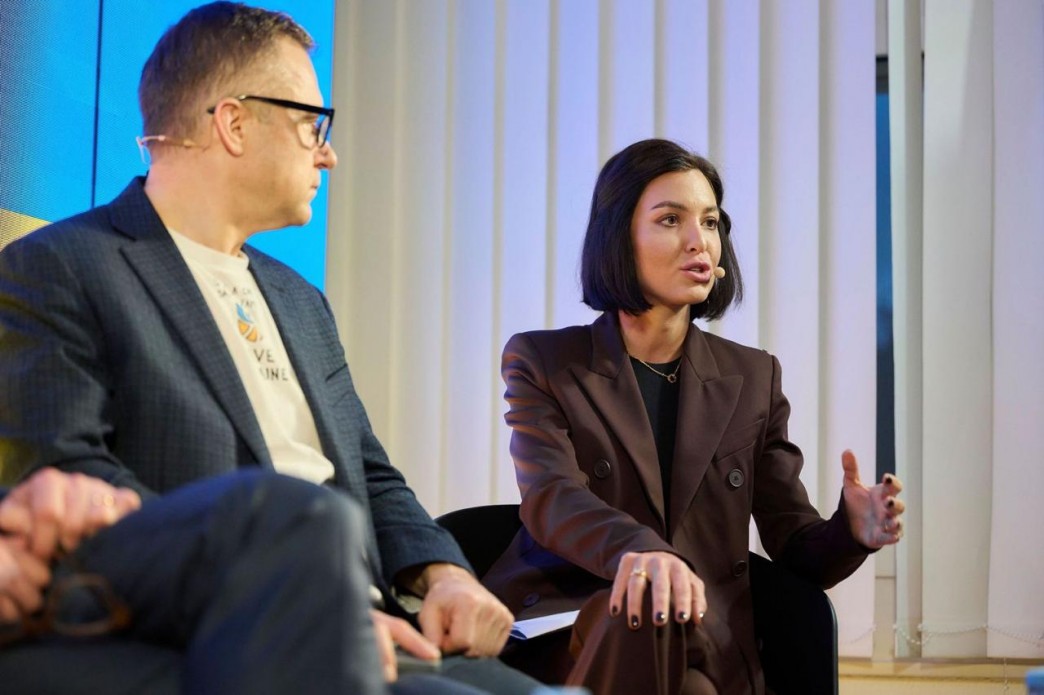The Ukraine House Davos hosted a panel discussion “Kidnapped to Kill: The Weaponization of Ukraine’s Children by Russia,” focusing on the forced deportation and militarization of Ukrainian children by Russia. The event was attended by Dariia Zarivna, Advisor to the Head of the Presidential Office and Chief Operating Officer of Bring Kids Back UA, leading international experts, human rights activists and politicians.
 Dariia Zarivna emphasized that the abduction of Ukrainian children is a part of Russia’s strategy to destroy Ukrainians as a nation.
Dariia Zarivna emphasized that the abduction of Ukrainian children is a part of Russia’s strategy to destroy Ukrainians as a nation.
“The children deported by Russia, as well as those on temporarily occupied territories, are subjected to brainwashing, forced to forget their roots, forbidden from speaking their native language, placed in Russian families and institutions, and later used for propaganda and military purposes. Russia sees them as an additional mobilization resource and turns them into weapons against their homeland,” she said.
In particular, the discussion focused on the fact that Russia creates “hate factories” in the temporarily occupied territories, where children are forced to wear military uniforms, join paramilitary organizations, and glorify the Russian army.
Director of the International Bar Association’s Human Rights Institute Lady Helena Kennedy LT KC, who co-chairs the Bring Kids Back UA Task Force together with Head of the Office of the President Andriy Yermak, stressed that under international humanitarian law, the deportation of children constitutes a war crime.
“Russia weaponizes deported children, conditioning them to believe that they are Russians too, that their past is a lie, and that their future is tied to the Russian Federation,” Helena Kennedy said.
 Through President Volodymyr Zelenskyy’s Bring Kids Back UA initiative, launched in May 2023, 1,037 children have already been returned to Ukraine. In particular, last year alone, Ukraine returned home 449 of its young citizens.
Through President Volodymyr Zelenskyy’s Bring Kids Back UA initiative, launched in May 2023, 1,037 children have already been returned to Ukraine. In particular, last year alone, Ukraine returned home 449 of its young citizens.
Mykola Kuleba, founder of the NGO Save Ukraine, highlighted the extreme difficulty of returning the children. That is why Ukraine needs the support of international partners.
Professor Nathaniel Raymond, Executive Director of the Humanitarian Research Lab at Yale University, underscored the importance of documenting Russia’s crimes to hold those responsible to account. He referenced findings from a recently published study by the lab.
“The analysts tracked the flight routes used by Russia to transport children out of Ukraine and identified key locations involved in this process. The deportation of Ukrainian children is a systemic policy planned by Russian officials at the highest levels of government,” he noted.
Former Dutch Defense Minister Kajsa Ollongren added that the militarization of children poses a threat not only to Ukraine but also to global security.




